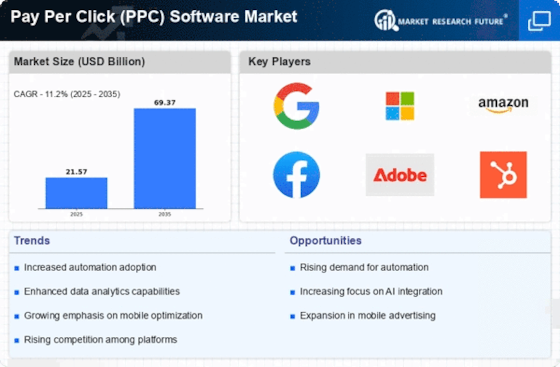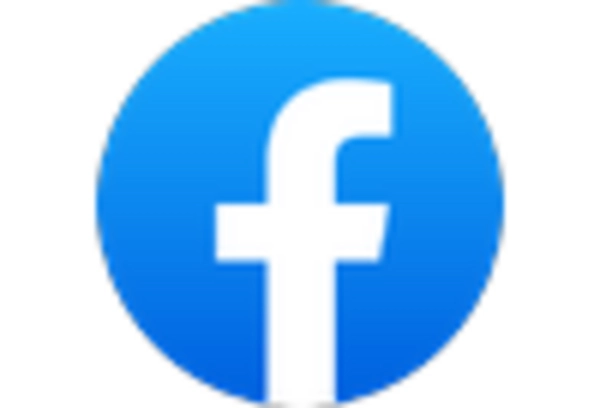Market Analysis
In-depth Analysis of Pay Per Click (PPC) Software Market Industry Landscape
The Pay Per Click (PPC) Software Market is dynamic sector heavily influenced by various market forces collectively shaping its growth path. Leading this market mainly includes businesses’ increased reliance on digital advertising as well as online marketing strategies. As companies strive to improve online visibility while targeting specific groups of customers; pay per click advertising forms part of their overall strategies towards creating digital marketing efforts. In response to the growing demand for efficient data-driven paid search campaigns, there have been increased number specialized PPC software solutions.
Innovation plays a huge role in the Pay Per Click (PPC) Software Market framework Technological revolution has seen digital advertising platforms evolve driven by algorithmic advances analytical systems such as machine learning technology. Consequently, the market has responded by coming up with innovations like automated bidding, ad performance analytics and integration with multiple advertising channels to enable businesses optimize their PPC campaign in order to get maximum ROI.
The global economic climate greatly affects the PPC Software Market. Economic fluctuations alter marketing budgets of companies which may affect digital advertisements as well as PPC campaigns. During periods of economic growth, businesses may allocate more funds to online marketing, leading to increased demand for PPC software solutions. However, there might be a more cautious approach during economic downturns influencing firms into scrutinizing their advertising expenditures and investing in cost effective PPC tools.
Regulatory dynamics and privacy concerns are critical factors in the development of these products as they need to comply with legislation relating to online marketing and data privacy policy among other stringent requirements that are set by the governments. This means that selecting a PPC software that is compliant and keeps user details secure becomes crucial for any business within this field especially since it have been influenced greatly by rules such as GDPR (General Data Protection Regulation) and also developing standards on privacy.



















Leave a Comment